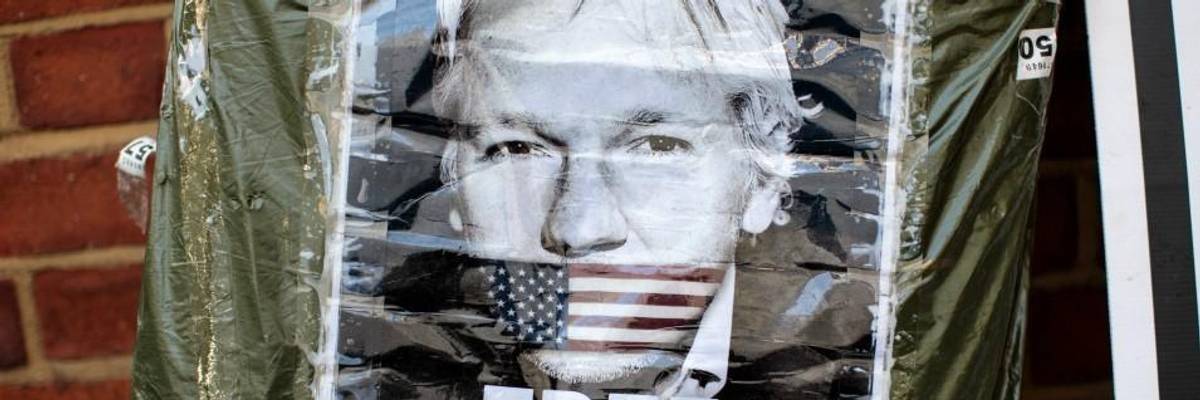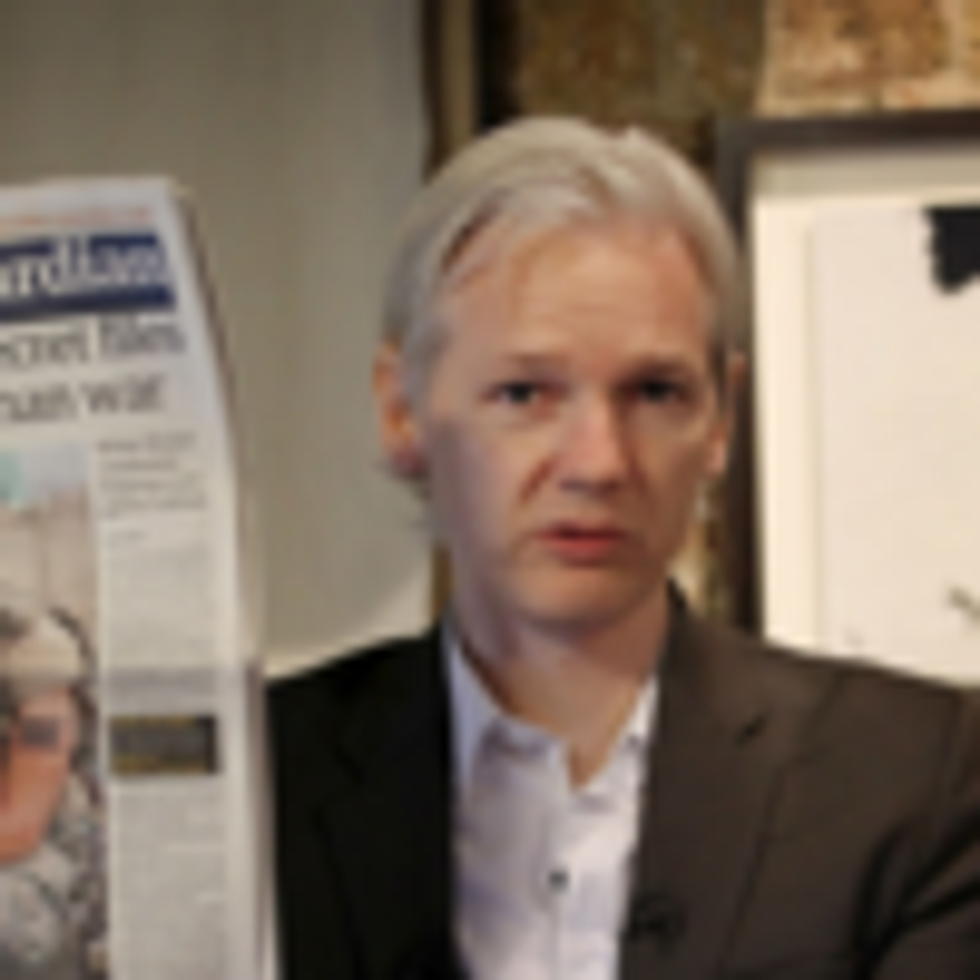

SUBSCRIBE TO OUR FREE NEWSLETTER
Daily news & progressive opinion—funded by the people, not the corporations—delivered straight to your inbox.
5
#000000
#FFFFFF
To donate by check, phone, or other method, see our More Ways to Give page.


Daily news & progressive opinion—funded by the people, not the corporations—delivered straight to your inbox.

The U.K. High Court on Wednesday began considering the U.S. government's appeal regarding the extradition of WikiLeaks founder Julian Assange. (Photo: Jack Taylor/Getty Images)
"The U.S. government's unrelenting pursuit of Julian Assange makes it clear that this prosecution is a punitive measure, but the case involves concerns which go far beyond the fate of one man and put media freedom and freedom of expression in peril."
"Journalists and publishers are of vital importance in scrutinizing governments, exposing their misdeeds, and holding perpetrators of human rights violations to account," Callamard said. "This disingenuous appeal should be denied, the charges should be dropped, and Julian Assange should be released."
Related Content

Dear Common Dreams reader, The U.S. is on a fast track to authoritarianism like nothing I've ever seen. Meanwhile, corporate news outlets are utterly capitulating to Trump, twisting their coverage to avoid drawing his ire while lining up to stuff cash in his pockets. That's why I believe that Common Dreams is doing the best and most consequential reporting that we've ever done. Our small but mighty team is a progressive reporting powerhouse, covering the news every day that the corporate media never will. Our mission has always been simple: To inform. To inspire. And to ignite change for the common good. Now here's the key piece that I want all our readers to understand: None of this would be possible without your financial support. That's not just some fundraising cliche. It's the absolute and literal truth. We don't accept corporate advertising and never will. We don't have a paywall because we don't think people should be blocked from critical news based on their ability to pay. Everything we do is funded by the donations of readers like you. Will you donate now to help power the nonprofit, independent reporting of Common Dreams? Thank you for being a vital member of our community. Together, we can keep independent journalism alive when it’s needed most. - Craig Brown, Co-founder |
"The U.S. government's unrelenting pursuit of Julian Assange makes it clear that this prosecution is a punitive measure, but the case involves concerns which go far beyond the fate of one man and put media freedom and freedom of expression in peril."
"Journalists and publishers are of vital importance in scrutinizing governments, exposing their misdeeds, and holding perpetrators of human rights violations to account," Callamard said. "This disingenuous appeal should be denied, the charges should be dropped, and Julian Assange should be released."
Related Content

"The U.S. government's unrelenting pursuit of Julian Assange makes it clear that this prosecution is a punitive measure, but the case involves concerns which go far beyond the fate of one man and put media freedom and freedom of expression in peril."
"Journalists and publishers are of vital importance in scrutinizing governments, exposing their misdeeds, and holding perpetrators of human rights violations to account," Callamard said. "This disingenuous appeal should be denied, the charges should be dropped, and Julian Assange should be released."
Related Content
